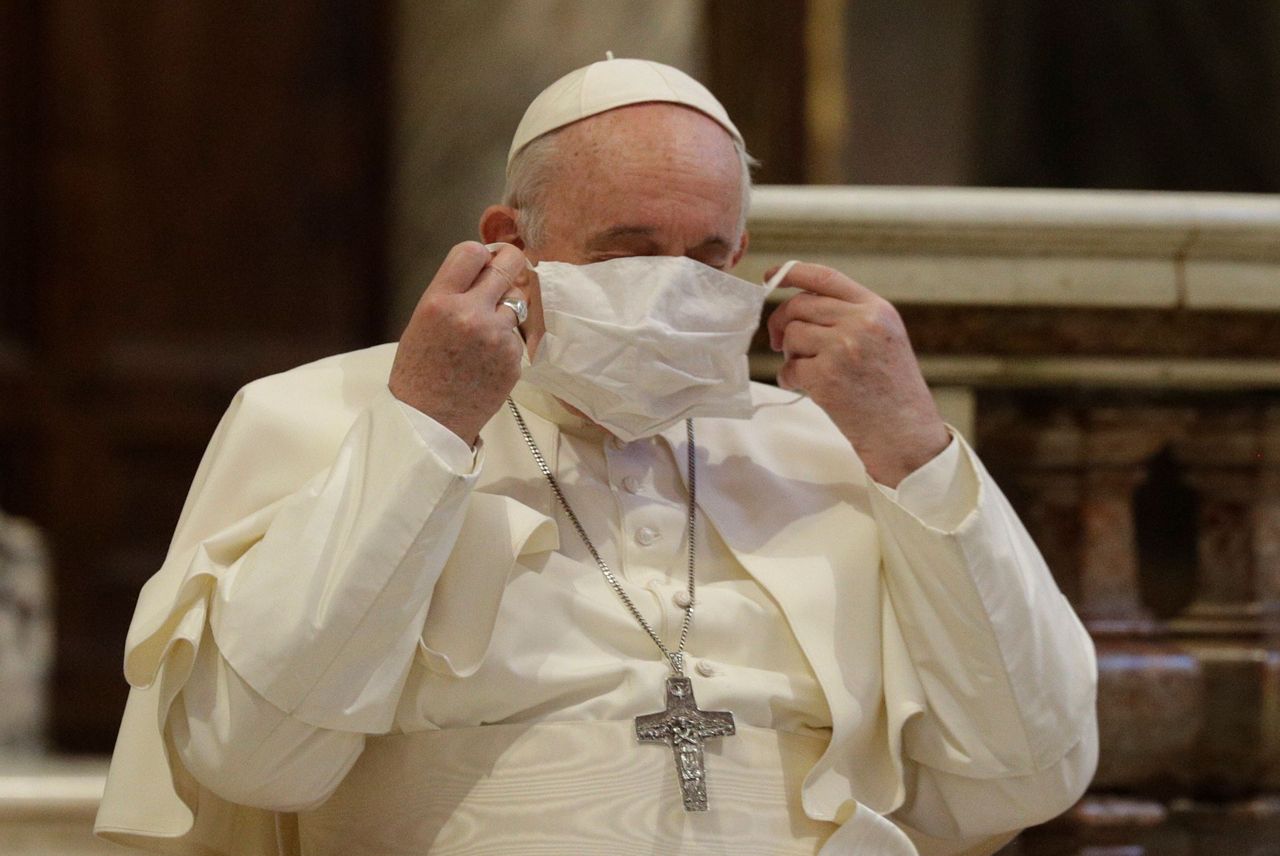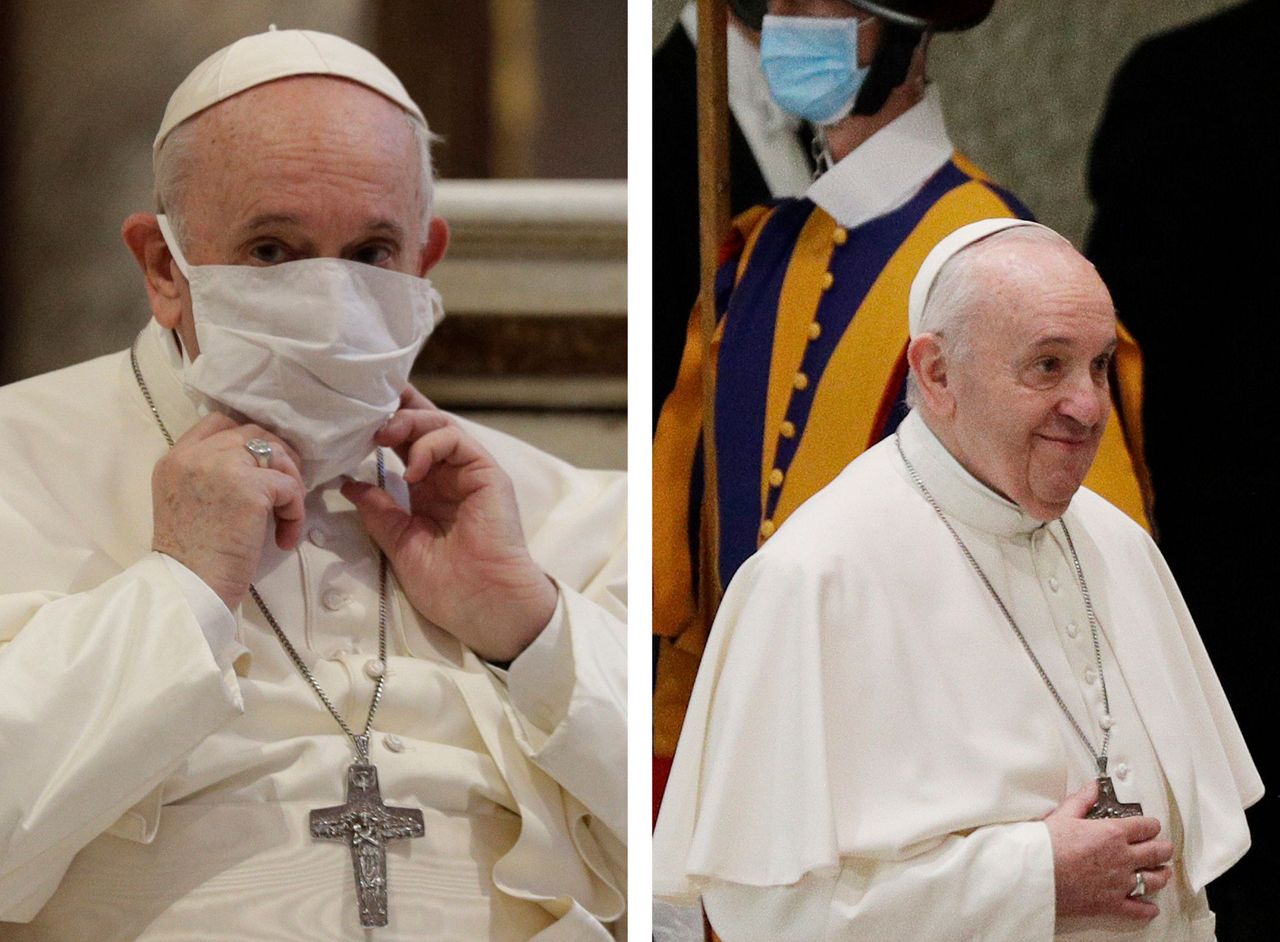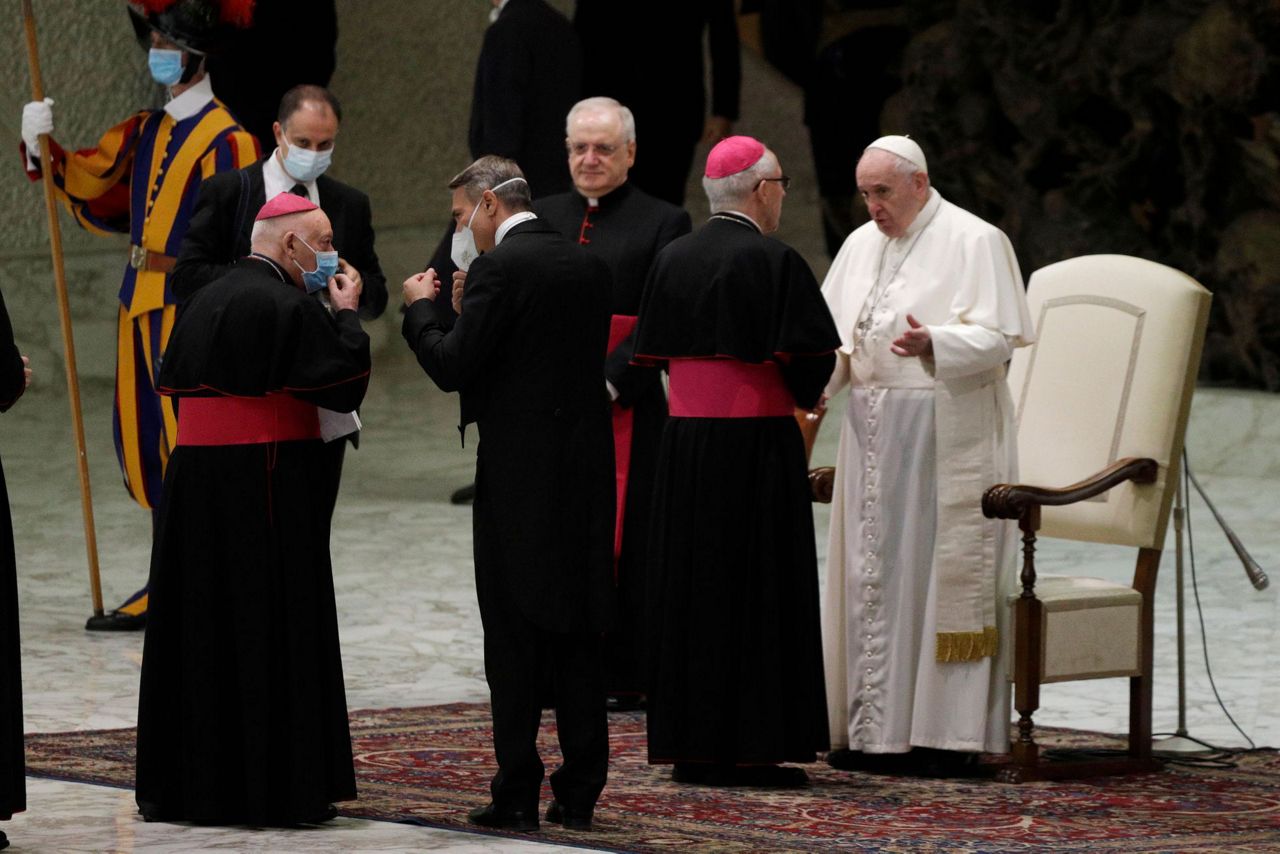ROME (AP) — Pope Francis’ decision to forgo wearing a mask has been noticed, with some concern, by the commission of Vatican experts he appointed to help chart the Catholic Church’s path through the coronavirus pandemic and the aftermath.
The Rev. Augusto Zampini, one of the key members of the pope’s COVID-19 commission, acknowledged Tuesday that at age 83 and with part of his lung removed after an illness in his youth, Francis would be at high risk for complications if he were to become infected with COVID-19.
“He has started to use the mask now,” Zampini said in response to reporters' questions. “And I hope he will use it in the general audiences, when he is close to the people. If you’re in an open space, we know that it’s different. But well, we are working on that."
Francis has courted some criticism for declining to wear a mask when indoors, even though Vatican regulations call for masks indoors and out when social distancing cannot be guaranteed. While Francis’ lung condition could help explain his decision to forgo the mask, he donned one for more than two hours last week when he presided over an indoor and outdoor interreligious prayer service in downtown Rome.
Yet the following day, Francis went maskless during his indoor general audience in the Vatican auditorium, including when he shook hands with a handful of similarly maskless bishops and leaned in to speak privately to each one. On Saturday, he met with Spanish Prime Minister Pedro Sánchez, who arrived wearing a mask only to take it off for the audience in the pope's library.
Photos of the maskless leaders caused a mild stir in Spain over the weekend, but the prime minister’s office dismissed it by saying the delegation was following Vatican protocol rules. Spain last week became the first country in Western Europe with more than 1 million confirmed virus cases.
The Vatican has declined to respond to questions about Francis and masks.
Zampini said the recent rise in infections in the tiny city state have commission members and the Vatican as a whole concerned. Thirteen Swiss Guards and a resident of the hotel where Francis lives have recently tested positive.
“We are very worried,” Zampini said, noting that the Vatican has strong regulations about keeping social distancing and washing hands within the territory. “We have all protocols in place, but still we have cases.”
He acknowledged, though, that the contagion within the Vatican has merely driven home the danger of the virus so that the Vatican itself can be witness to what the rest of the world is experiencing and help be part of the solution.
The commission is working to address the current needs of the church around the world with concrete acts of assistance, while also developing policy recommendations for how governments and institutions can re-think global economic, environmental, social, health care and other structures to be more equitable and sustainable.
Commission members recently met with pharmaceutical companies that are developing COVID-19 vaccines, part of Francis' appeal to make a vaccine universally available for even the poorest countries.
Asked if the Vatican had raised concerns that some vaccines were being made with cell lines derived from aborted fetuses, or have had early laboratory testing using a test made with fetal cell lines, Zampini said the ethical concerns were more than just biological.
“The ethical discussion, let's be crystal clear on this, it's not just the ingredients," Zampini said. “How is it manufactured? How is it funded? How is it distributed? Because this is also about ethics."
___
AP reporters Aritz Parra in Madrid and Lauran Neergaard in Washington contributed.
___
Follow all of AP’s coronavirus pandemic coverage at http://apnews.com/VirusOutbreak and https://apnews.com/UnderstandingtheOutbreak
Copyright 2020 The Associated Press. All rights reserved. This material may not be published, broadcast, rewritten or redistributed without permission.










